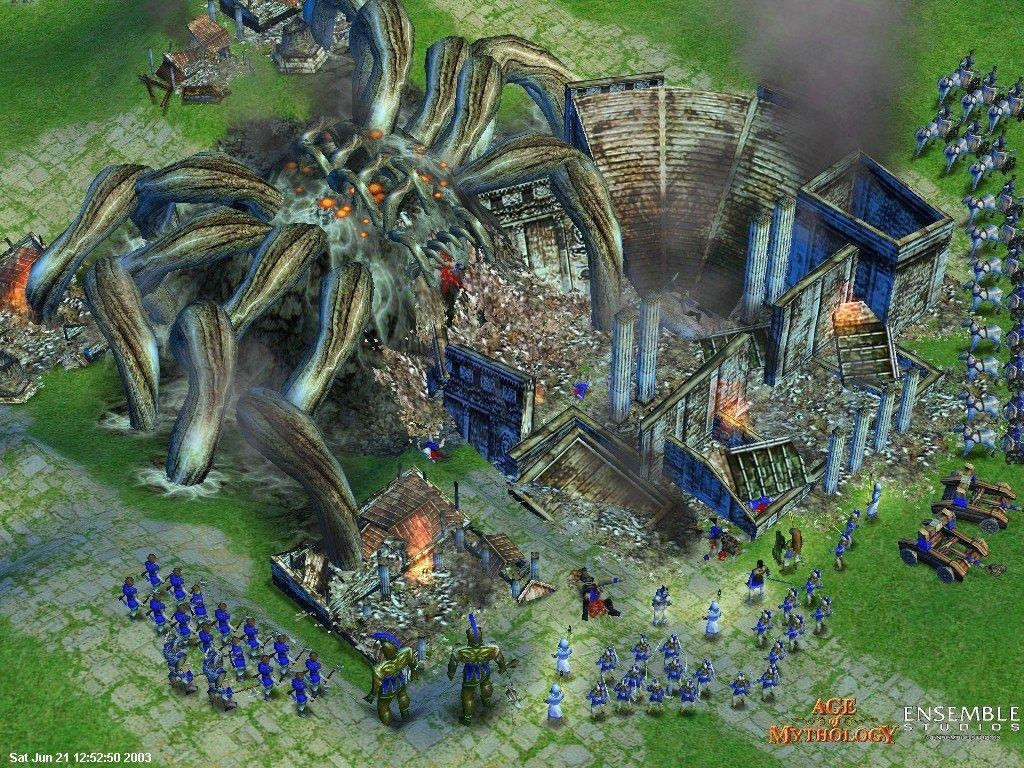
For example, the Greeks have the Bronze power that buffs all basic units with bronze armor, while the Egyptians have the Ancestors power that can raise skeleton soldiers at the selected location. Layered on top of all these differences are god powers, instant use powers that can apply powerful benefits for players. The Norse, on the other hand, are focused on being an entirely mobile civilization as they can gather resources anywhere with Ox Carts, and gain favor through heroes fighting. The Egyptians can gain favor more easily resulting in more myth units, and they can heal units with the Pharaoh and Priests. The Greeks focus on military might with strong heroes and units that are more expensive than the other two. The sheer variety in the three civs is astounding, as there's no crossover in unites whatsoever between them. This decides what starting myth units and research players have, and as they advance to subsequent ages players get to choose minor gods to worship which grants different units, god powers, and research. Gods make up the core foundations of Age of Mythology, as players pick a major god to worship at the start of a match. The three civilizations (Greek, Egyptian, and Norse) play entirely different, from having completely different units, to god power and research.



By comparison Age of Mythology has a smaller roster of playable civilizations, but the variety is through the roof. Age of Empires has a massive roster of civilizations, each of which has its own unique quirks and bonuses.


 0 kommentar(er)
0 kommentar(er)
